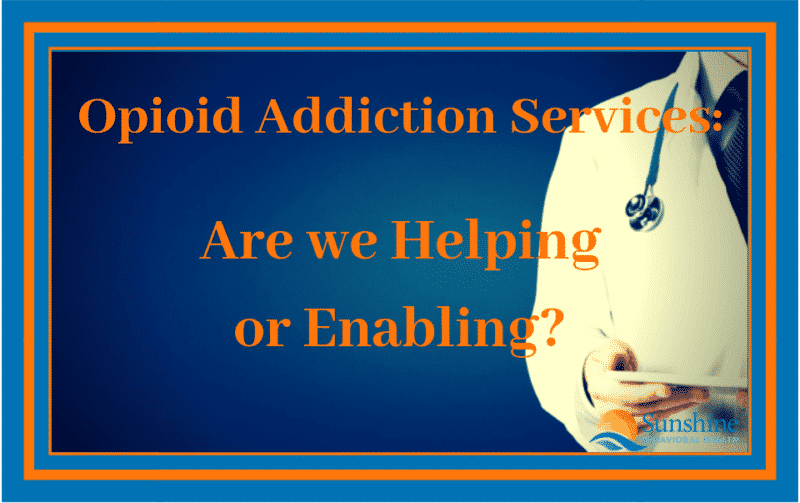
Opioid addiction services all over the U.S. are in crisis in multiple ways, reflecting the opioid misuse epidemic that has steadily gained momentum for the last two decades. Healthcare providers continue to struggle, challenged to find effective ways to help countless individuals and their loved ones devastated by this phenomenon.
The opioid epidemic in the U.S. has overwhelmingly burdened communities and their resources. For example, law enforcement, jails, courts, child welfare services, and even coroners have been overwhelmed by the epidemic and continue to be.
U.S’s Opioid Addiction Burden–Lives, Suffering, and Money
One particularly poignant effect of the U.S’s opioid problem highlights the human “collateral damage” of opioid addiction. The epidemic has taken victims other than those addicted, notably the children of people addicted to opioids. The number of children taken into custody due to parental opioid addiction has risen as opioid use has accelerated. In Ohio, for example, half the children taken into protective custody were removed from their homes due to opioid use in 2015. Foster care placements are exhausted, and children with opioid-addicted parents are in the state’s custody longer than ever.
Additionally, the economic burden of opioid addiction in Ohio has been so exorbitant that the state filed lawsuits in May of 2017 against 5 pharmaceutical companies that manufacture prescription opioids. It is estimated that the opioid addiction epidemic in Ohio has cost the state hundreds of millions of dollars as its agencies have attempted to meet the needs of Ohio’s opioid-addicted citizens and their children.
The Drugs Involved in the Opioid Use Epidemic
Opioid addiction services attempt to help those who misuse prescription painkillers and illegal substances such as heroin and illegally manufactured fentanyl. Prescription opioids are used for the mild, moderate, or severe pain involved in such medical problems as injury, surgery, or cancer. Some such prescription medications are listed below by generic name (Be aware there are numerous brand name prescription drugs containing these substances):
-
Codeine and related drugs
-
Fentanyl (pharmaceutical)
-
Hydrocodone
-
Hydromorphone
-
Meperidine
-
Methadone
-
Morphine
-
Oxycodone
The misuse of these drugs occurs in several ways. For example, they may be obtained illegally without legitimate medical needs and prescriptions. They may also be obtained by prescription but used in ways not prescribed, such as by injection, in higher doses, or mixed with other substances. No legitimate medical need for heroin is recognized by the medical profession or governmental control in the U.S. All heroin is illegally manufactured, trafficked, possessed, and used. However, it is considered similar to prescription opioids in its effects and is often used interchangeably by people with Opioid Use Disorders.
Opioid Addiction Services—Enabling or Helping?
Opioid addiction services throughout the U.S are fighting the epidemic with a variety of strategies. Since the opioid epidemic is a powerfully emotional issue for communities, there is often a great deal of controversy about tactics. Some wonder if efforts to help those with addictions do not really enable them.
Among the most controversial efforts of opioid addiction services are needle exchange programs designed to decrease addiction-related infection. Another strategy has allowed greater public access to naloxone (Narcan), an overdose antidote. And, using medications such as buprenorphine (Suboxone) and methadone to replace opioids, has been considered enabling by many as well. However, all these practices have proven effective overall in meeting their individual goals for countless people. Addiction-related infections decrease with needle exchange programs, fatal overdoses are prevented with naloxone, and buprenorphine and methadone dramatically improve the quality of life for many.
Addiction-related infections decrease with needle exchange programs, fatal overdoses are prevented with naloxone, and buprenorphine and methadone dramatically improve the quality of life for many. None of these strategies however, are the answer in themselves to the epidemic, and to date, combined efforts have not stopped the epidemic.
If You or a Loved One Need Help
If you or a loved one is addicted to an opioid, you are certainly not alone. Whether you are searching for help to overcome a prescription painkiller addiction, or are looking for heroin rehab centers, there is effective help available. Despite the feelings of hopelessness and helplessness that accompany an Opioid Use Disorder, there is always hope for recovery.
Opioid addiction is a treatable medical disorder. You or your addicted loved one can overcome an opioid addiction and have a sustainable recovery. The key is to take the right action with the right help. An appropriate treatment program individualized for your specific needs is essential. Reach out for help no matter how hopeless you feel. An inpatient rehab center can make all the difference.
A Message From Our CEO
Medical disclaimer:
Sunshine Behavioral Health strives to help people who are facing substance abuse, addiction, mental health disorders, or a combination of these conditions. It does this by providing compassionate care and evidence-based content that addresses health, treatment, and recovery.
Licensed medical professionals review material we publish on our site. The material is not a substitute for qualified medical diagnoses, treatment, or advice. It should not be used to replace the suggestions of your personal physician or other health care professionals.





